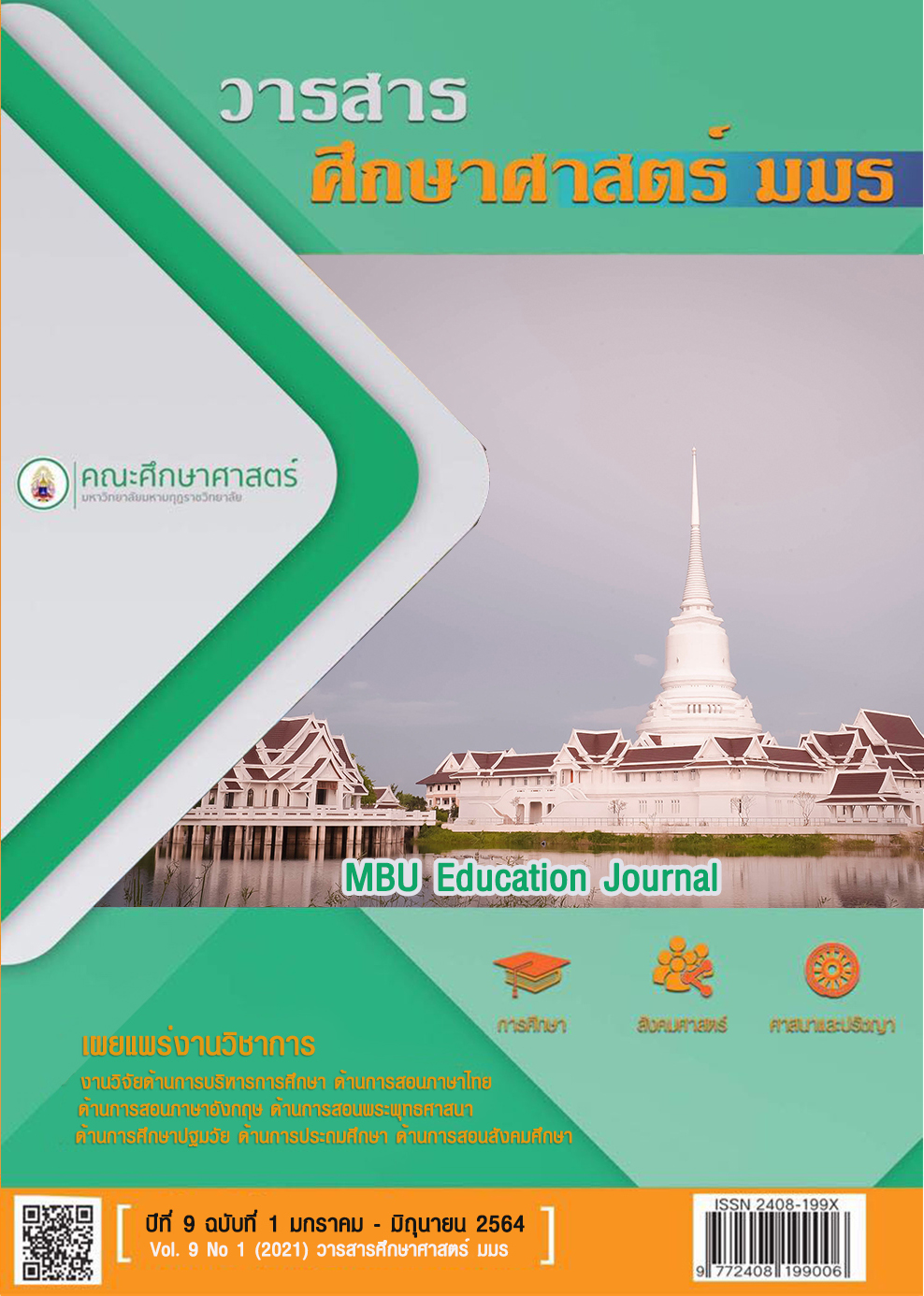การสอนสังคมศึกษากับการพัฒนาความเป็นพลเมืองยุคดิจิทัล
คำสำคัญ:
พลเมืองดีตามวิถีประชาธิปไตย, ความเป็นพลเมืองดิจิทัล, รูปแบบการจัดการเรียนรู้, สังคมศึกษาบทคัดย่อ
บทความนี้ผู้เขียนอธิบายเกี่ยวกับแนวคิดการพัฒนาความเป็นพลเมืองในยุคดิจิทัลหรือพลเมืองดิจิทัล โดยกล่าวถึงความสำคัญของการพัฒนาพลเมือง การเปลี่ยนแปลงเกี่ยวกับแนวคิดการพัฒนาความเป็นพลเมืองจากอดีตสู่ปัจจุบัน คุณลักษณะของความเป็นพลเมืองดิจิทัล ความจำเป็นในการพัฒนาความเป็นพลเมืองดิจิทัลในผู้เรียนทุกระดับการศึกษา รวมทั้งรูปแบบการจัดการเรียนรู้เพื่อพัฒนาความเป็นพลเมืองดิจิทัล อันจะเป็นประโยชน์แก่ครูและผู้บริหาร โดยเฉพาะครูสังคมศึกษาที่มีเป้าหมายของการจัดการศึกษาเพื่อการพัฒนาพลเมืองดีตามวิถีประชาธิปไตย ให้เกิดความรู้และเข้าใจเกี่ยวกับความเป็นพลเมืองดิจิทัล และสามารถนำรูปแบบการจัดการเรียนรู้เพื่อส่งเสริมความเป็นพลเมืองดิจิทัลไปประยุกต์ใช้ต่อไป
เอกสารอ้างอิง
Collier, A. (2009). A Better Safety Net: It's Time to Get Smart about Online Safety. School Library Journal. 55(11), 36-38. Retrieved November 16, 2019 from http://ezproxy.tamu.edu:2048/login?url=http://search.ebscohost.com/login.aspx?direct=true&db=f5h&AN=44980393&site=ehost-live
Curran, Marialice B. F. X.& Ribble, M. (2017). P–20 Model of Digital Citizenship. New Directions for Student Leadership. no. 153, Spring 2017. Wiley Periodicals, Inc. DOI: 10.1002/ yd.20228
Choi, M. (2016). A Concept Analysis of Digital Citizenship for Democratic Citizenship Education in the Internet Age. Theory & Research in Social Education. 44(4), 565-607. DOI:10.1080/00933104.2016.1210549
Fong, J. (2015). New Citizenship for a Digital Age: 21st Century Digital Citizenship Education. A Project Submitted in Partial Fulfillment of the Requirements for the Degree of Master of Education, Department of Curriculum and Instruction, University of Victoria. Retrieved November 16, 2019 from https://dspace.library.uvic.ca/handle/1828/6946
Goonnasit, P. (2017). A Needs Analysis for Enhancing Digital Citizenships of Students in Mattayomwatnairong School. An Online Journal of Education. 12(4), 205-219.
Kaeduang, K. (2019). Psycho -Social Factors AffectedGood Citizenship Behavior in Digital World of High School Students under the Basic of Education Commission in Bangkok. Journal of Behavioral Science for Development (JBSD). 11(1), 124-143.
Keesukpun, E. (2016). School Management in Digital Era [weblog]. Retrieved November 16, 2019 from https://www.trueplookpanya.com/ knowledge/content/52232/-edu-teaartedu-teaart-teaartdir-
Mossberger, K., Tolbert, C. J., & McNeal, R. S. (2008). Digital Citizenship. Cambridge, MD: Author.
Ribble, M. S. (2015). Digital Citizenship in Schools: Nine Elements all student should know. 3rd ed. Virginia: International Society for Technology in Education.
Snyder, S. (2016). Teachers' Perceptions of Digital Citizenship Development in Middle School Students Using Social Media and Global Collaborative Projects. Walden Dissertations and Doctoral Studies. Walden University. Retrieved November 16, 2019 from https://scholarworks. waldenu.edu/cgi/viewcontent.cgi?referer=& httpsredir=1&article=3607&context=dissertations
The Royal Society. (2013). Knowledges [weblog]. Retrieved November 16, 2019 from http://www.royin.go.th/?knowledges=citizen-31-December-2013
UNESCO. (2016). A Policy Review: Building Digital Citizenship in Asia-Pacific through Safe, Effective and Responsible Use of ICT. Bangkok: UNESCO Bangkok.
Wessels, J. (2017). Introduction: The Digital Age Opens Up New Terrains for Peace and Conflict Research. Conflict and Society: Advances in Research. 3(2017),125–129. DOI:10.3167/arcs.2017.030110
Wongkitrungruang, W. (2018). Guideline for Thai Digital Citizenship. Retrieved November 16, 2019 from https://thaidigizen.com/wpcontent/ uploads/2018/06/ DigitalCitizenship-Book-ok.pdf






